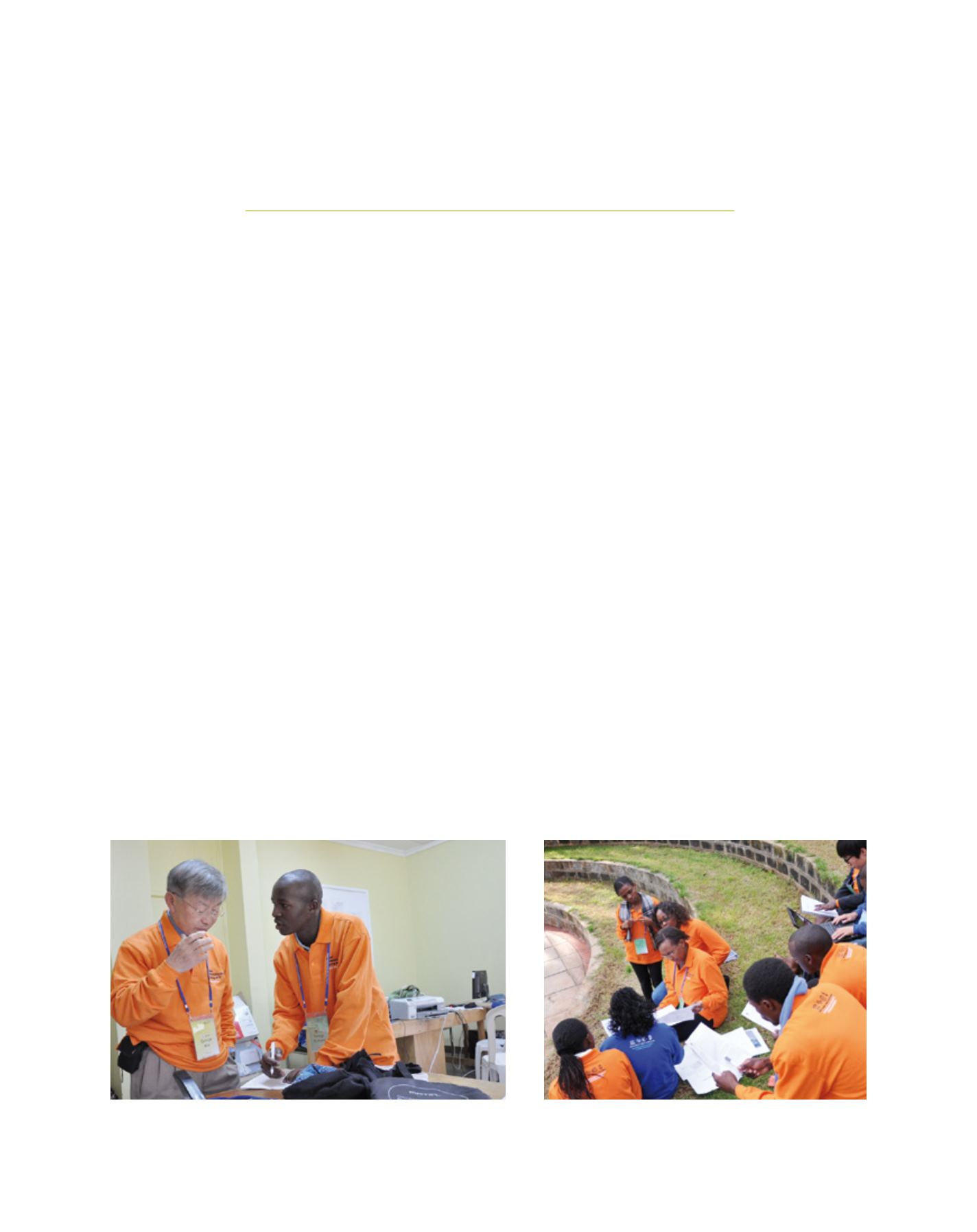

[
] 166
Entrepreneurship as the
fishing rod in place of the fish
Young-Gil Kim, PhD and George Gihong Kim, PhD, Handong Global University, Pohang, Korea
T
he world community has been spending a great deal of
effort on tackling world hunger and poverty, especially
since the adoption of the Millennium Development Goals
(MDGs), but now that we are rapidly approaching 2015 and
many of the resources have been spent, the result is much less
than hoped for originally. There may be many reasons for the
limited result, but one basic common problem seems to be the
lack of sustainability of the initiatives undertaken.
Changing mindsets
Establishment of the will to act generally requires a change of
mindset among the people involved. This change should bring
motivation and hope to the community. It requires more than
simply learning what needs to change. A profound experience,
rather than a transfer of knowledge, can often trigger the more
profound change in learners needed to address sustainable devel-
opment. This can best be brought about through Education for
Sustainable Development (ESD), which not only conveys informa-
tion but also gives learners a more holistic experience.
It is often said that ‘what is needed is a fishing rod instead of
a fish’ and that education should equip learners in this regard.
However, the metaphor alone is not helpful without knowing
exactly what the fishing rod means in real life. Essentially, it
is what modern education should offer to learners through the
change of mindset it can offer them. This change brings people
encouragement and confidence and breeds hope for a more
sustainable future.
The motivation to do something to improve living
conditions is often called the entrepreneurial spirit. In
a broad sense, this spirit refers to ‘creating something
from nothing’, compared with its narrow sense, which
is ‘starting a new business’. Most understand only the
latter meaning of entrepreneurship, since people with
an entrepreneurial mindset in the wider sense tend to
start new enterprises.
For decades, there has been debate as to the role of
entrepreneurship in development, and it seems that
there is a convergence of opinions regarding what
entrepreneurship contributes to the development
of a country.
2,3,4,5,6
The traditional model for assist-
ing low-income countries has mainly been based on
unconditional cash grants. It usually relies on the
governments of the recipient countries for dissemi-
nation of the aid funds. However, this approach has
turned out to be unsustainable and has shown only
limited long-term impacts. Moreover, it often has
detrimental side-effects for the recipient countries.
Most of all, the short-term perspective of this kind of
project cannot offer robust long-term sustainability.
The vital role of education
A more effective way to assist low-income countries
might be to equip them with education in entrepre-
neurship, to give people the means to create their
Image: GET’10 in East Africa
Image: GET’10 in East Africa
Classroom consultation. communication is an important part of HGU’s
training programmes
















